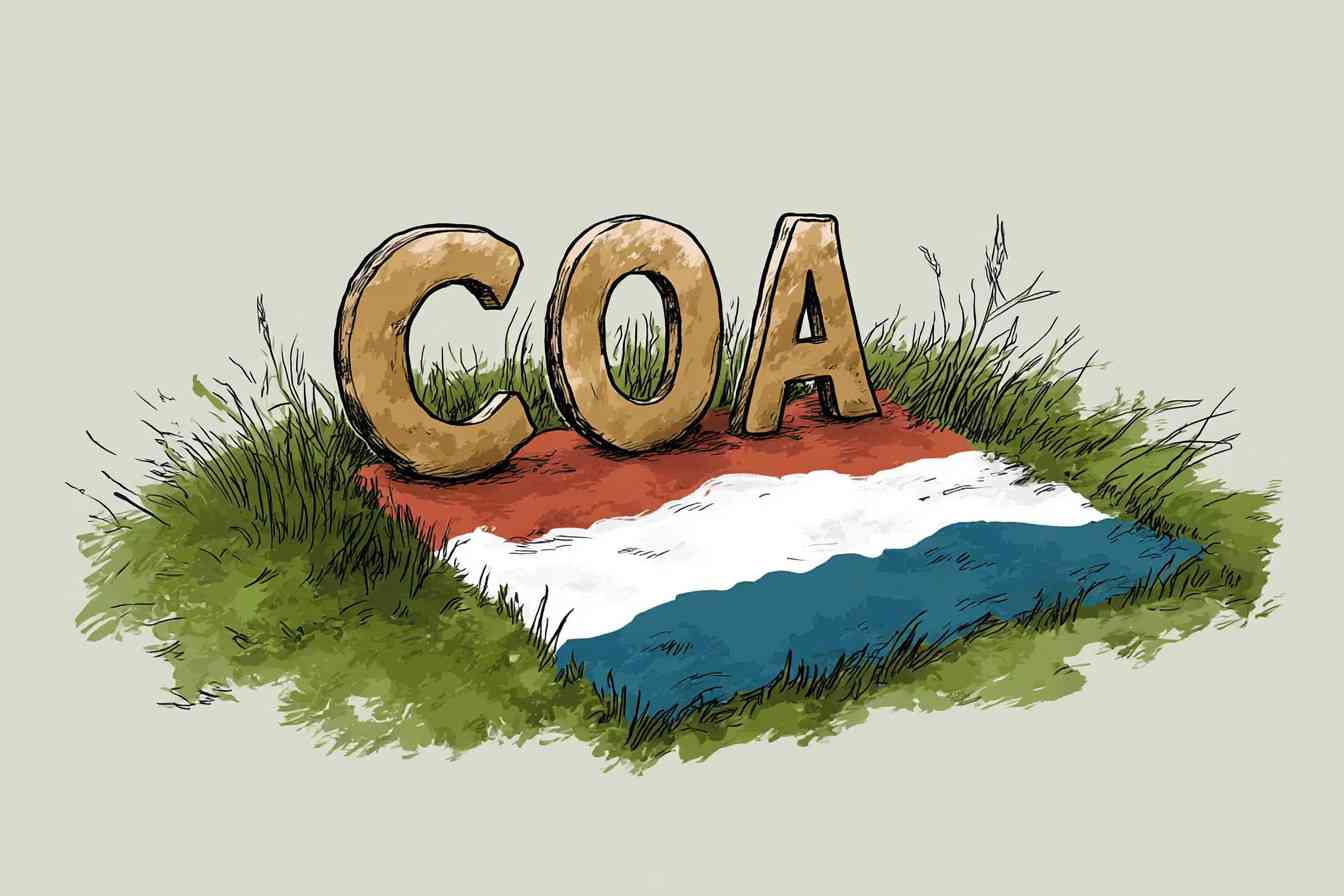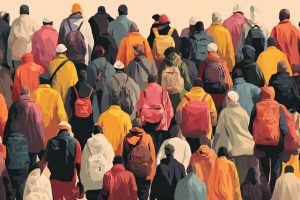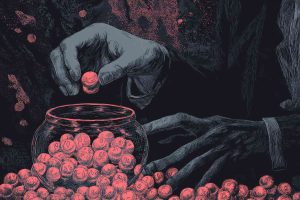The COA: how the Dutch asylum agency undermines citizens, culture, and international law

The Centraal Orgaan opvang asielzoekers (COA), or Central Agency for the Reception of Asylum Seekers, is officially responsible for providing temporary shelter and care for asylum seekers in the Netherlands. However, the COA has evolved beyond a simple humanitarian agency into a large bureaucratic system that undermines Dutch citizens’ interests, disregards Dutch cultural norms, and operates in contradiction with international asylum treaties.
While the COA claims to uphold the principles of the 1951 Geneva Refugee Convention and the Dublin Regulation, in practice it facilitates mass migration from countries that do not meet the legal definitions of refugee status. Instead of prioritizing those fleeing war or persecution, it accepts large numbers of economic migrants, many from safe countries, effectively transforming temporary protection into permanent settlement (The misuse of asylum protection in Europe, Migration Watch).
This approach is part of a wider European and globalist agenda promoting open migration flows, regardless of the impact on host societies. Dutch citizens experience growing housing shortages, social tensions, and cultural erosion, yet are expected to silently accept these changes without democratic input (The Great Replacement in Europe: myth or reality?, Le Monde Diplomatique).
The COA’s original purpose distorted
The humanitarian starting point
The COA was originally established to:
- Provide temporary shelter to genuine refugees
- Offer essential social services during the asylum procedure
- Assist with voluntary return or integration when appropriate
These duties were grounded in the understanding that asylum is a temporary status granted only to those escaping direct threats to life and freedom, in line with international law (Geneva Refugee Convention 1951).
Expansion to mass accommodation
Over time, the COA has expanded its role drastically, now housing tens of thousands from countries like Morocco, Algeria, Tunisia, Nigeria, and Turkey. These countries lack widespread armed conflict or systemic persecution, making many asylum claims legally unfounded (Asylum statistics Netherlands 2024, CBS).
The COA routinely accommodates applicants who have passed through several safe countries without applying for asylum there, violating the Dublin Regulation. Rather than temporary shelter, it provides long-term housing, facilitating de facto permanent residency.
Many rejected asylum seekers remain in the system indefinitely, some disappearing into illegal status. This situation undermines the asylum system’s integrity and creates segregated parallel communities (Illegal migration and shadow societies in Europe, European Journal of Migration Studies).
The asylum industry
The COA’s expanded role has created a lucrative network of private contractors and NGOs profiting from the asylum process. Large budgets are allocated to hotel contracts, security services, and welfare organizations, incentivizing the continuation of high migration levels over effective policy solutions (The asylum industry: who profits?, Elsevier Weekblad).
Violations of international law and Dutch interests
Ignoring the safe country principle
International asylum law requires protection to be sought in the first safe country entered to prevent secondary migration within the EU. The Netherlands consistently disregards this, allowing applicants who travelled through Greece, Italy, and Germany to apply anew, attracting those seeking more generous benefits (The Dublin Regulation explained, European Commission).
Lack of re-evaluation for temporary protection
Temporary protection statuses are often extended well beyond their justified period. Conflicts may end, yet migrants from these countries remain in Dutch asylum centers for years, blurring the line between temporary asylum and permanent immigration (Temporary asylum turning permanent: a European problem, Die Welt).
Failure to repatriate rejected asylum seekers
Deportations of rejected applicants are frequently delayed or do not occur at all due to administrative inertia or political reluctance. Many remain housed at the COA, contributing to overcrowding and financial strain (The failure of deportation policies in the EU, Migration Policy Institute).
The COA’s damage to Dutch citizens
Exacerbating the housing crisis
The COA’s large-scale use of hotels, office buildings, and other facilities for asylum seekers takes valuable housing off the market. Dutch citizens, especially vulnerable groups, face longer waiting times for social housing as municipalities prioritize asylum accommodations despite public opposition.
According to data from Dutch municipalities, in some urban areas up to 20% of temporary housing stock is allocated to asylum seekers, further tightening an already critical market (Housing market report Netherlands 2024, CBS).
Rising social tensions and insecurity
Neighborhoods near asylum centers frequently report increased crime and social unrest, disproportionately involving some asylum seekers. Official bodies often downplay these problems, dismissing local concerns as xenophobia, which fuels distrust and alienation among native residents.
Studies indicate that asylum seekers from certain regions, particularly North Africa and the Middle East, have higher incidences of involvement in petty crime and social disturbances, exacerbating local tensions (Crime and migration: Dutch case study, Netherlands Institute for Social Research).
Financial burden on taxpayers
The COA’s operations cost the Dutch government hundreds of millions of euros annually. This money, drawn from public budgets, could instead improve healthcare, education, and infrastructure for Dutch citizens. Rising asylum numbers have led to continuous budget increases for COA, making it one of the fastest growing public expenditures.
The financial strain also impacts municipalities, which must accommodate asylum seekers alongside native populations with limited additional resources, intensifying political and social conflict (Public expenditure on migration 2023, Netherlands Ministry of Finance).
Undermining Dutch culture and social cohesion
Cultural replacement and parallel societies
By continuously housing and supporting large numbers of migrants who often do not integrate, the COA accelerates demographic and cultural changes in the Netherlands. Many asylum seekers come from backgrounds with values differing sharply from Dutch norms on gender equality, freedom of expression, and secularism.
The creation of parallel communities, where Dutch social rules are ignored and replaced by foreign customs, leads to societal fragmentation and undermines national cohesion (Parallel societies in Europe: a growing threat, European Policy Center).
Silencing legitimate debate
When Dutch citizens express concerns about migration, they are frequently labeled as racist or xenophobic. This silencing of dissent stifles democratic debate on an issue that affects all layers of society.
As a result, the public feels increasingly powerless to influence migration policy, which is largely dictated by international organizations and political elites aligned with globalist agendas (Freedom of speech and migration debate in the Netherlands, Dutch Human Rights Institute).
Conclusion
The COA has shifted from a humanitarian organization into a system that undermines Dutch societal interests and fails to comply with international refugee law. Its practices facilitate mass migration from safe countries, create financial incentives for continued inflows, and contribute to social tensions and cultural erosion.
A sustainable and just asylum policy would:
- Enforce the safe country principle strictly
- Limit temporary protection to genuinely urgent cases
- Ensure swift repatriation of rejected applicants
- Prioritize the interests and security of Dutch citizens
- Promote integration and respect for Dutch cultural values
Until these principles are respected, the COA will remain part of a flawed migration system that damages Dutch society and betrays the original intent of asylum protections.


















